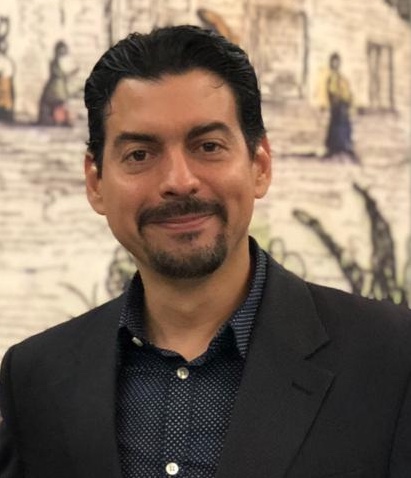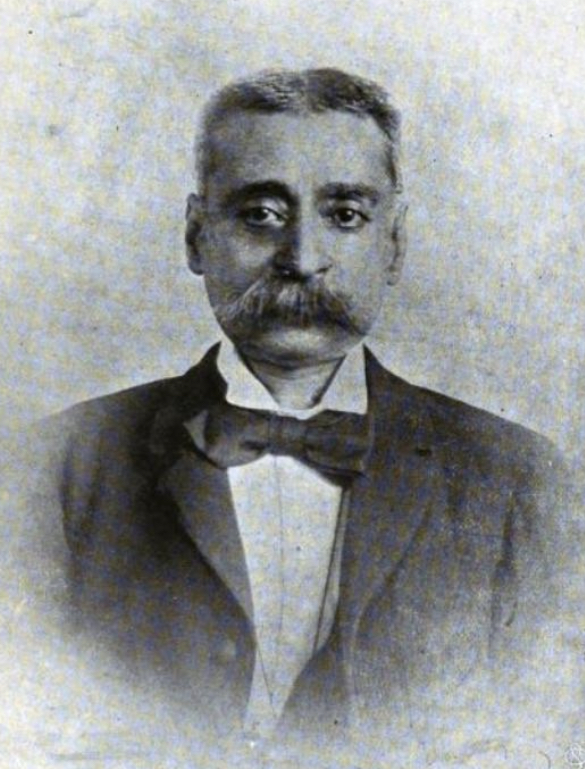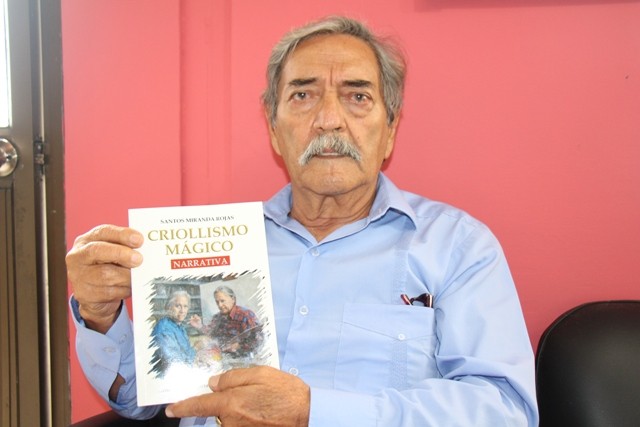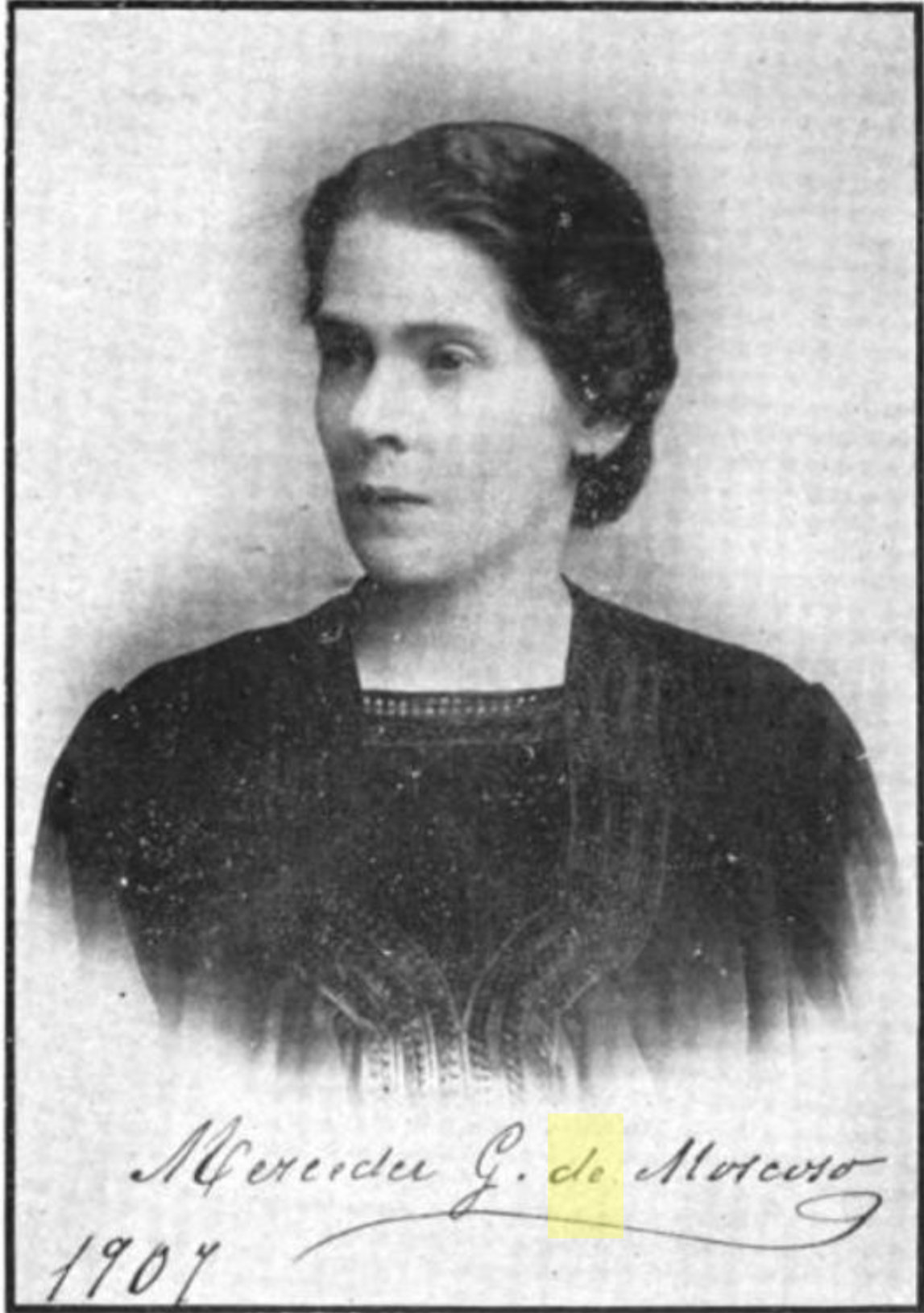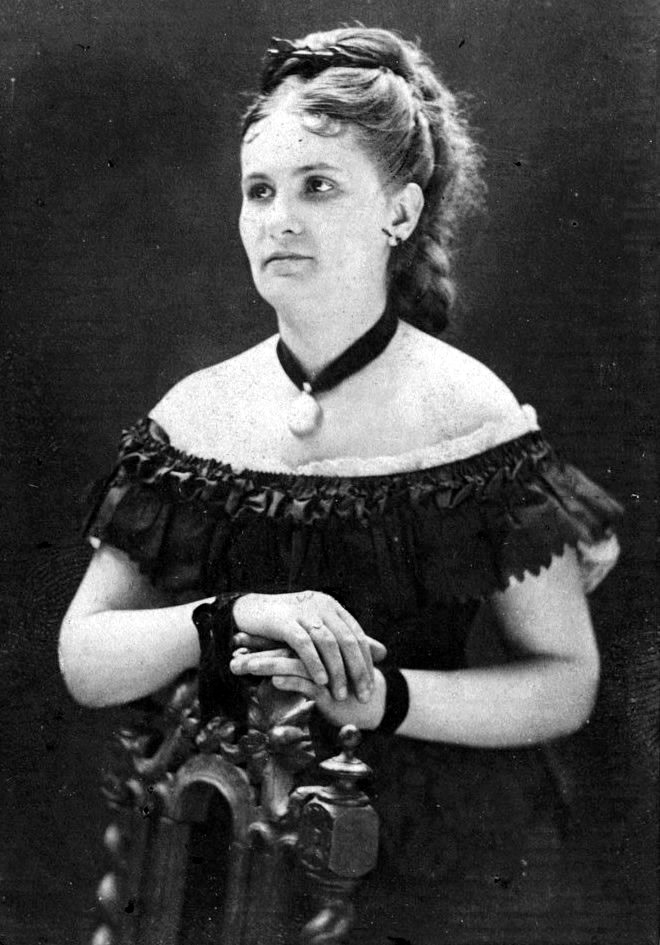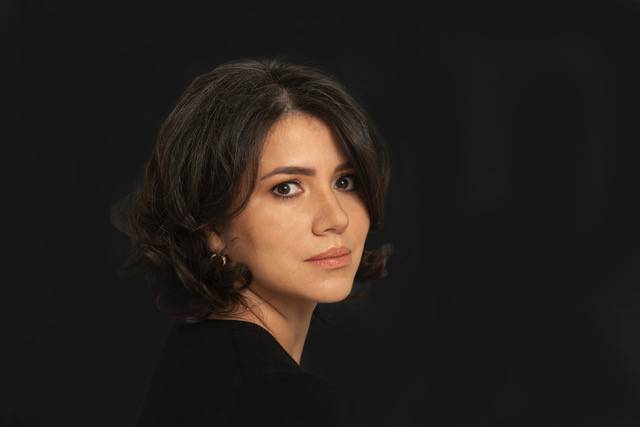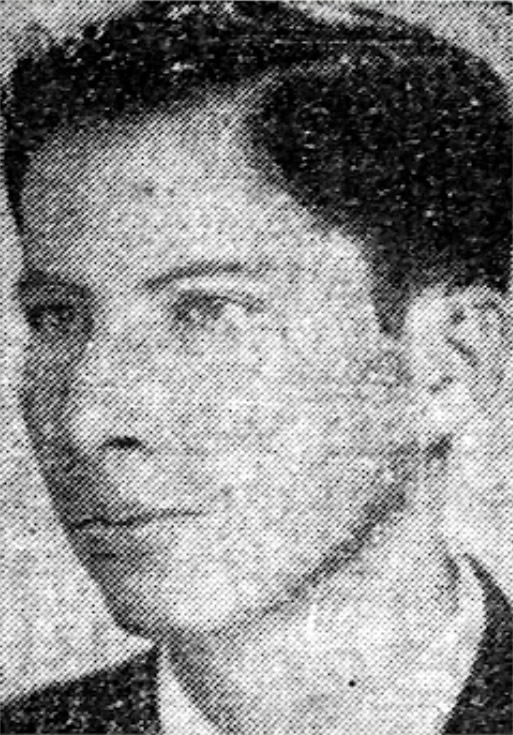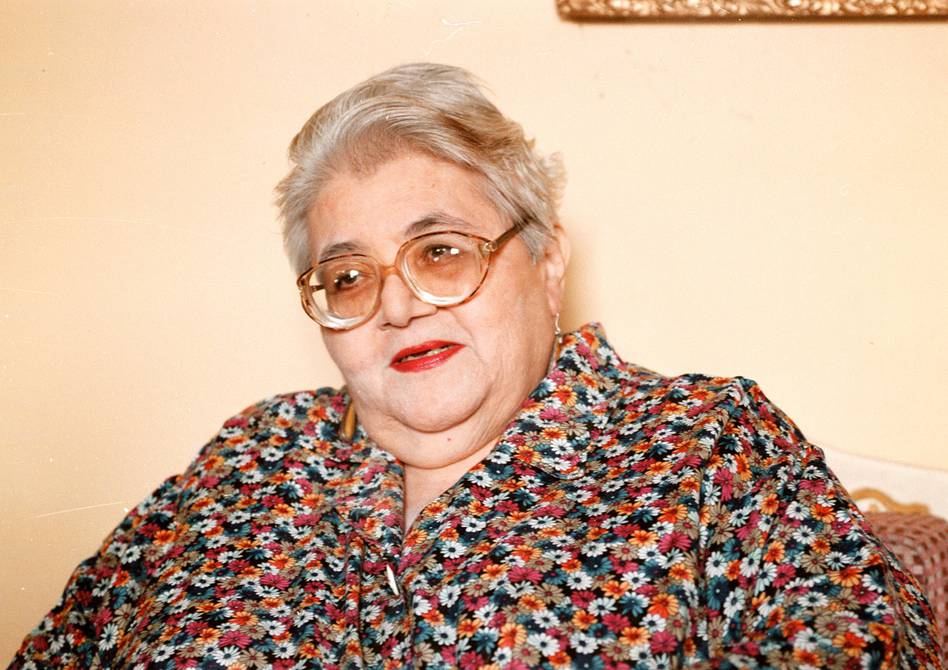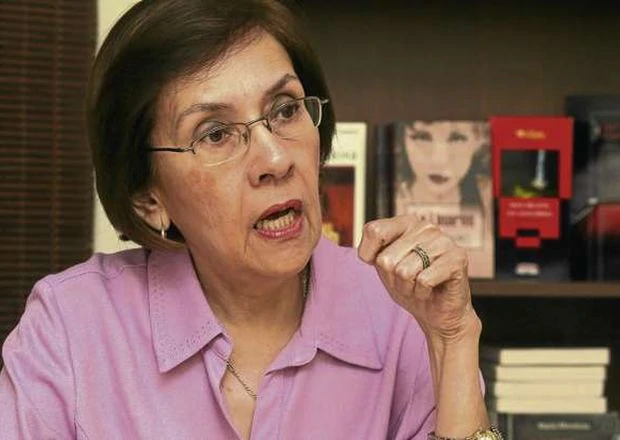Agustín Vulgarín Marín (Guayaquil, 1938 – 1986) was a poet, fiction writer, actor, and playwright. He penned several notable poetry books, including works such as “El pez que fuma” (1964), “El bosque de las estatuas” (1974), and “Cuadernos de Bantú” (1977). Vulgarín’s literary talent also encompassed the realm of drama, with plays like “Atahualpa: drama en dos actos” and “La Mayasquerita: drama en tres actos.” Furthermore, he left two unpublished novels, “Alfeo el de las iguanas” and “Los poriparalos.”
Continue reading “Agustín Vulgarín”Category: Writers from Guayaquil
María Luisa Lecaro
María Luisa Lecaro Pinto was an early 20th-century Ecuadorian poet from Guayaquil who wrote under the pseudonym Tatá. In 1927, she came in second place in a poetry contest sponsored by the journal Savia, with Hugo Mayo taking first place. She was the sister of cartoonist and caricaturist Guillermo Lecaro Pinto, known by the pseudonym Lekropín, director of humorous and anticlerical journals in the city of Guayaquil, and to whom she dedicated one of her best-known poems. Her work, which had been ignored for decades, was rediscovered thanks to the poetry anthology “Del Vanguardismo hasta el 50” [From Avant-garde To 1950], published by the Ecuadorian writer and literary critic Rodrigo Pesántez Rodas in 1999.
Continue reading “María Luisa Lecaro”Edgar Ramirez Estrada
Edgar Ramirez Estrada (Guayaquil, May 5, 1923 – April 9, 2001) was an Ecuadorian poet and psychiatrist. He published 6 poetry collections during his lifetime and his work has been included in several anthologies. His work was admired and championed by many renowned Ecuadorian literary figures such as Alejandro Carrión Aguirre, Miguel Donoso Pareja, and Carlos Eduardo Jaramillo. Beginning with his poetry collection “Derrumbe” (1969), his style of poetry has been referred to as anti-poetry or no-poetry. All of his books were published by the House of Ecuadorian Culture. He was the son of one of Ecuador’s most important poets, Aurora Estrada y Ayala. He was also the brother of novelist Alcino Ramírez Estrada and poet Isabel Ramírez Estrada.
Continue reading “Edgar Ramirez Estrada”Eduardo León
Eduardo León Rodríguez (Guayaquil, 1977) is an Ecuadorian poet and author of children’s literature. His poetry collections include: “Censurado” (2018) and “Manzana para mi boca” (2019), both of which were published by El Ángel Editor. His poems have also been included in several anthologies. His first children’s book was “Luz Emilia, un cuento de la infancia.” His latest children’s book is “Ofelia y las cabras mágicas.”
Continue reading “Eduardo León”Manuel Gallegos Naranjo
Manuel Gallegos Naranjo (Guayaquil, March 26, 1845 – Ibídem , 1917) was a prominent Ecuadorian chronicler, novelist, and poet during the late nineteenth and early twentieth centuries. In 1871, he founded the magazine Espejo, which provoked the ire of President Gabriel García Moreno, leading to Gallegos Naranjo’s exile to Chile. Upon his return to Ecuador, he supported General Ignacio de Veintimilla and established the newspaper Ocho de Septiembre, receiving a government salary. He eventually relocated to Quito. In 1878, he began publishing his initial works as a writer. Subsequently, he released a critical loose leaf targeting Juan León Mera, a supporter of García Moreno. Gallegos Naranjo contributed to the newspaper La Nación in his hometown and served as the editor of Diario Los Andes. In 1883, he published “El Almanaque Ecuatoriano” [The Ecuadorian Almanac] a comprehensive reference containing valuable information across its extensive 300-page content. In 1895, he suffered from thrombosis, leaving him wheelchair-bound. Gallegos Naranjo’s work “Celebridades Malditas” is a historical novel that delves into the lives of infamous characters from old Guayaquil who became entangled in criminal activities due to their ill-fated choices. This novel has been reprinted by the Editorial of the Municipal Library of Guayaquil. Additionally, six of his unpublished works are preserved in the Carlos Alberto Rolando National Authors Library in Guayaquil.
Continue reading “Manuel Gallegos Naranjo”Santos Miranda Rojas
Santos Miranda Rojas (Guayaquil, September 12, 1940) is an Ecuadorian novelist and short story writer. He has lived in the city of Manta in the province of Manabi for many years and mostly identifies as Mantanese or Manabite. He was president of the Manabi chapter of the House of Ecuadorian Culture, president of the Manabi chapter of the Latin American Union of Writers, first president of the cultural group Alfaro Camina, director of the Sunday supplement Séptimo Día of the newspaper El Mercurio of Manta. Among his many accolades are the following: First Prize of the Oswaldo Castro Intriago Biennial Novel Award, presented by the House of Ecuadorian Culture, Manabi; the Intercollegiate Read Book Competition, sponsored by the Municipality of Quito; In 2000, his short story “El Niño Pintor” won silver at an international competition hosted by the government of Argentina, the Buenos Aires Lions Club, the Organization of American States, and the Spanish Embassy. Among his best known works is the novel, “La Casa del Nené” (2009) and the narrative book “Criollismo Mágico” (2014).
.
Continue reading “Santos Miranda Rojas”Mercedes G. de Moscoso
Mercedes G. de Moscoso, born Mercedes González Tola, also known by the pen name Rosa del Valle (Guayaquil, October 12, 1860 – October 23, 1911) was an Ecuadorian poet, playwright, activist and feminist. She is known as the greatest exponent of Ecuador’s second romanticism, she was notable for her poetry and plays. The majority of her poetry is contained in the books, Cantos del Hogar (1909) and Rosas de Otoño (1911). She wrote three plays, Abuela (1903), Martirio sin culpa (1905), and Nobleza (unpublished). In 1905 she collaborated with Zoila Ugarte and Dolores Sucre in La Mujer, the first feminist and suffragette magazine in Ecuador. Her brother was the poet Nicolás Augusto González.
Continue reading “Mercedes G. de Moscoso”Cristina Reyes
Cristina Reyes, born Cristina Eugenia Reyes Hidalgo (Guayaquil, August 26, 1981) is an Ecuadorian lawyer, legislator, politician, former beauty contestant, and poet. Since 2000, Reyes has published 4 poetry collections. She was the first runner-up in the Miss Ecuador 2004 pageant, and she also competed in Miss World 2004 in Sanya, China, and Miss Earth 2005 in Quezon City, Philippines. She has worked as a show host for TC Televisión, Telesistema (now RTS), Telerama, and Ecuavisa. Her first television appearance as a reporter was on the show Ventana a la Calle, which was hosted by Kenneth Carrera, who was later replaced by Reyes after he became involved in politics. She served in Ecuador’s Constituent Assembly as a member of the Social Christian Party from 2007 to 2008, and has also served as an assemblywoman in Ecuador’s National Assembly. She is currently an Andean Parliamentarian of Ecuador and Vice President of the Education Commission.
Continue reading “Cristina Reyes”Dolores Sucre
Dolores Sucre y Lavayen (Guayaquil, November 1837 – Guayaquil, June 5, 1917) was a writer, poet, and a descendant of South American independence leader Antonio José de Sucre (1795-1830). In 1883, she recited her poems at the Centenary of the Liberator’s Birth and the inauguration of the statues of Simón Bolívar and Vicente Rocafuerte. On December 9, 1905, Ms. María Sánchez Urbina presented her with the Golden Lyre at the Olmedo Theater in Guayaquil, and the poet Numa Pompilio Llona dedicated a sonnet to her entitled “A Dolores Sucre,” to which Dolores modestly recited her poem “Mi Gratitud.” Her prolific literary work was published in Ecuador’s main newspapers and magazines, and she was admired in Peru by literary personalities such as Ricardo Palma, Carlos G. Amézaga, Teobaldo Corpancho, and Clorinda Mattos de Turner.
Continue reading “Dolores Sucre”Sabrina Duque
Sabrina Duque (Guayaquil, 1979) is an award-winning Ecuadorian journalist, writer, and translator. She was a finalist for the 2015 Gabriel García Márquez Journalism Prize in the Text category for her work “Vasco Pimentel, el oidor.” In 2017, she published “Lama,” a non-fiction account of the survivors of Bento Rodrigues and Paracatú de Baixo, communities in central Brazil devastated by a flood of toxic mud from a mining dam failure. She won the The Michael Jacobs Prize for Travel Writing in 2018 for her book “VolcáNica.” She has lived in Portugal, Costa Rica, Brazil, and Nicaragua, where she conducted research on active volcanoes, and she now resides in the United States. Some of her work has been translated into English, Italian and Portuguese.
Continue reading “Sabrina Duque”David Ledesma Vásquez
David Ledesma Vásquez (Guayaquil, December 17, 1934 – March 30, 1961) was an Ecuadorian poet, writer, journalist, stage actor, and radio drama and radio soap opera actor. Although his work went unnoticed for several years after his death, it eventually acquired a cult following. He belonged to Club 7, a group of poets from the port city of Guayaquil in the 1950s. He committed suicide by hanging at the age of 27 in 1961. He left behind several unpublished works, including one ominously titled “La risa del ahorcado” [The Hanged Man’s Laugh]. Ileana Espinel Cedeño, a fellow Club 7 member, oversaw the posthumous publication of his poetry collection “Cuaderno de Orfeo” [Orfeo’s Notebook] in 1962.
Continue reading “David Ledesma Vásquez “Gastón Hidalgo Ortega
Gastón Hidalgo Ortega (Guayaquil, March 19, 1929 – January 5, 1973) was an Ecuadorian poet and member of Club 7, a poets’ group in Guayaquil in the 1950s. His poems can be found within the books “Club 7” (1954) and “33 poemas universitarios” (1955), both of which were compilations of poetry by various authors. His poems were also published in various magazines such as Cuadernos del Guayas, Ateneo Ecuatoriano, Letras del Ecuador, as well as the newspaper La Nacion from La Paz. During his lifetime he did not publish a collection of his own. In 1990, the House of Ecuadorian Culture published a posthumous collection of his poems, “Colección de poesía ecuatoriana: La rosa de papel, 25,” compiled by fellow Club 7 member Ileana Espinel. He worked as an editorial proofreader at the House of Ecuadorian Culture in Guayaquil. He died at age 44.
Continue reading “Gastón Hidalgo Ortega”Ileana Espinel Cedeño
Ileana Espinel Cedeño (Guayaquil, October 31, 1933 – February 21, 2001) was an Ecuadorian poet, journalist and writer. She was the only female member of the 1950’s Guayaquil poetry group Club 7. Espinel joined The House of Ecuadorian Culture at the age of 23, becoming the organization’s first female member. She served as editor of the Ecuadorian journals El Universo, El Telégrafo, and La Nación as well as the Mexican magazine Nivel and the Venezuelan magazine Poesía. In 1957, she published “Piezas Líricas” [Lyrical Pieces], which was her favorite collection of her own poetry. She served as the the principal Councillor of the Guayaquil canton (1967-1970). As an editor, she was instrumental in getting the works of various poets published by the House of Ecuadorian Culture. The Guayaquil International Poetry Festival Ileana Espinel Cedeño, named in her honor, has established itself as one of the most important Festivals in Latin America.
Continue reading “Ileana Espinel Cedeño”Walter Bellolio
Walter Bellolio (Guayaquil, 1930 – 1974) was a well-regarded Ecuadorian short story writer. During his lifetime, he published a number of short story collections, and his work has appeared in several anthologies. He traveled to Spain in 1974 to publish the book that would make him famous, “Crónica del hombre que aprendió a llorar,” [Story of the Man Who Learned to Cry] but was killed by a car that struck him shortly after arriving. The House of Ecuadorian Culture published the book posthumously in 1975. He is the maternal grandfather of the writer Daniela Alcívar Bellolio.
Continue reading “Walter Bellolio”Cecilia Ansaldo
Cecilia Ansaldo Briones (Guayaquil, 1949) is an Ecuadorian professor, essayist, and literary critic. She is currently a professor at both Casa Grande University and the Catholic University of Santiago de Guayaquil in Ecuador. In 2015, she became a member of the Ecuadorian Language Academy, a correspondent organization of the Royal Spanish Academy. She is a member of the Mujeres del Ático group and a founding member of the Open Book Station Cultural Center. She writes an opinion column for the newspaper El Universo. She has chaired the Guayaquil International Book Fair’s content committee since 2015.
Continue reading “Cecilia Ansaldo”
